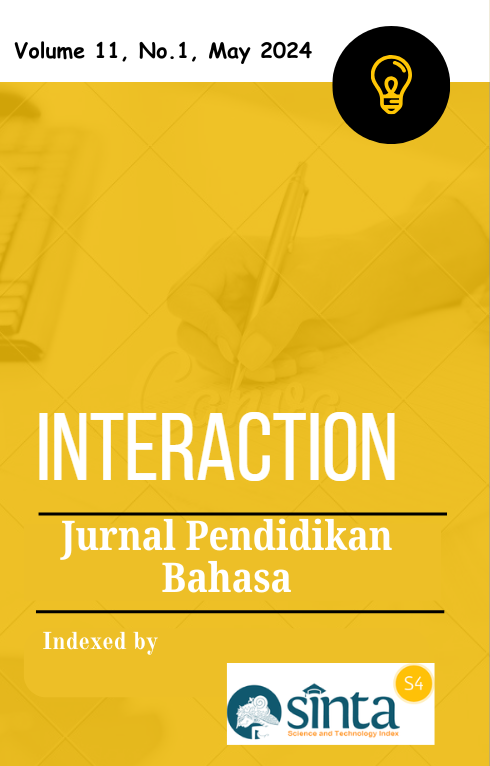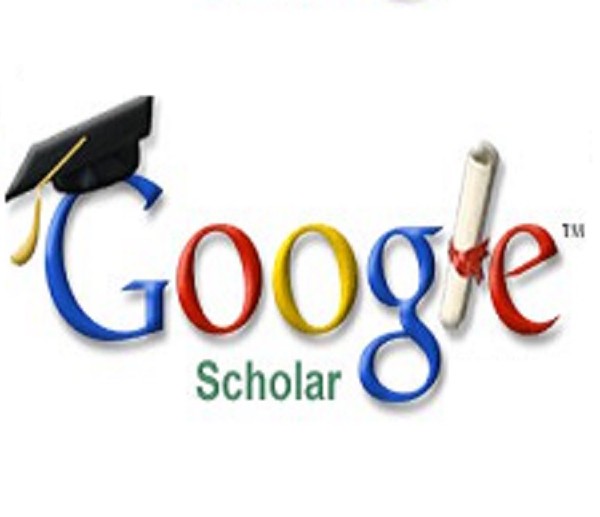Changing Principal Leadership in the Age of Digitalization
Abstract
The purpose of this research is to investigate how student learning results, teacher professional development, and the efficacy of school administration are affected by the shift in leadership in the digital age in technology-driven management of education governance. A qualitative research approach was used in the study's design, and semi-structured interviews with teachers, students, and school administrators were used to collect data. Triangulation method was used in the research to analyse school policy documents and practices pertaining to technology integration. At SD Muhammadiyah 14 Palembang, the results demonstrated a considerable improvement in students' academic performance through technology-based education management. Personalized learning materials are made available to students through the use of educational software and online resources, which also improves academic performance. Furthermore, the use of digital platforms for feedback and evaluation has made it easier for teachers to monitor students' progress in real time and effectively, enabling them to offer focused interventions. The present study underscores the noteworthy influence of technology-driven education governance on the academic achievements of students, the professional growth of educators, and the efficiency of school administration at SD Muhammadiyah 14 Palembang. The study points up a number of integration-related difficulties that school administrators must carefully analyse and handle. The study's recommendations are intended to address these issues and enhance the efficacy of SD Muhammadiyah 14 Palembang's technology-based education management in the digital age.
Downloads
References
Afini, V., Suratni, S., Kumalasari, C., Novia, F., & Purwanto, M. B. (2023). Language Learning Approaches: A Study Meta-Analysis of Vocabulary Mastery in EFL Learners. Journal of Language Development and Linguistics, 2(2), 111–126. https://doi.org/10.55927/jldl.v2i2.5805
Agustin, A., Arafat, Y., & Rosani, M. (2023). Pengaruh Gaya Kepemimpinan Kepala Sekolah dan Budaya Organisasi terhadap Kinerja Guru SMA. JIIP-Jurnal Ilmiah Ilmu Pendidikan, 6(6), 4026–4032. https://doi.org/10.54371/jiip.v6i6.2129
Agustin, A., & Purwanto, M. B. (2023). Pengaruh Gaya Kepemimpinan Kepala Sekolah Terhadap Kinerja Guru SMA. LIMEEMAS: Jurnal Ilmiah Pendidikan, 1(2), 55–64. https://ejournal.apmapi.or.id/index.php/Limeemas/article/view/12
Arikunto, S. (2009). Dasar-Dasar Evaluasi Pendidikan (Edisi Revisi). Riau University.
Astirini Swarastuti, Budiyanto, B., & M Bambang Purwanto. (2024). Management Of English Learning To Improve Digital-Based Language Literacy Skills. International Journal of Education, Vocational and Social Science , 3(01 SE-Articles), 202–215. https://doi.org/10.99075/ijevss.v3i01.672
Auliana, N. U., Hanadya, D., & Purwanto, M. B. (2022). Pengembangan Objek Wisata Kambang Iwak Park Sebagai Paru-Paru Kota Palembang. NAWASENA: Jurnal Ilmiah Pariwisata, 1(3), 20–31. https://doi.org/10.56910/nawasena.v1i3.375
Aziizah, D. R., Wirawan, W., & Thalib, S. (2018). Pengaruh Gaya Kepemimpinan Kepala Sekolah Dan Budaya Organisasi Terhadap Kinerja Guru Dengan Kepuasan Kerja Sebagai Variable Intervening. Jurnal Ilmiah Ekbank, 1(2).
Budiyanto, Kabri, K., Harapan, E., & Purwanto, M. B. (2024). 21st Century English Learning: a Revolution in Skills, Critical Thinking, Creativity, and Visual Communication. Asian Journal of Applied Education (AJAE), 3(1 SE-Articles), 43–54. https://doi.org/10.55927/ajae.v3i1.7841
Creswell, J. W. (2009). Research Designs: Qualitative, Quantitative, and Mixed Methods Approaches. Sage Publication.
Dacholfany, M. I., Iqbal, M., Rahmi, E., & Purwanto, M. B. (2024). Principal’s Leadership Strategy in Efforts to Development the Quality of Human Resources in Schools. JIIP - Jurnal Ilmiah Ilmu Pendidikan, 7(1 SE-), 487–493. https://doi.org/10.54371/jiip.v7i1.3356
Daga, A. T. (2021). Makna Merdeka Belajar dan Penguatan Peran Guru di Sekolah Dasar. Jurnal Educatio FKIP UNMA, 7(3), 1075–1090. https://doi.org/10.31949/educatio.v7i3.1279
De Raeve, L., Baerts, J., Colleye, E., Croux, E., & De Raeve, L. (2012). Changing schools for the deaf: Updating the educational setting for our deaf children in the 21st century, a big challenge. Deafness & Education International, 14(1), 48–59. https://doi.org/The characteristics of 21st century education have been articulated by many and continue to evolve. However, in order to achieve within this developing context and beyond, it is accepted that students need: ( Jan, Hee: 2017) • Reading literacy • Information literacy • Technological literacy • Skills for personal knowledge building • Oral literacy and numeracy
Drake, S. M., & Reid, J. L. (2018). Integrated curriculum as an effective way to teach 21st century capabilities. Asia Pacific Journal of Educational Research, 1(1), 31–50.
Dyson, S. E., Liu, L., van den Akker, O., & O’Driscoll, M. (2017). The extent, variability, and attitudes towards volunteering among undergraduate nursing students: implications for pedagogy in nurse education. Nurse Education in Practice, 23, 15–22.
Edi Harapan, Tri Aprina, & Darwin Effendi. (2023). Principals’ Strategies To Improve The Quality Of Education: A Qualitative Research At SMA Negeri 1 West Pemulutan. International Journal of Education, Vocational and Social Science , 3(01 SE-Articles), 107–125. https://doi.org/10.99075/ijevss.v3i01.648
Erman, N., & Winario, M. (2024). Kepemimpinan Transformasional Terhadap Kemampuan Organisasi dalam Mengatasi Krisis Di Era Digital. Innovative: Journal Of Social Science Research, 4(1 SE-Articles), 11022–11034. https://doi.org/10.31004/innovative.v4i1.8936
Fajriani, Y., & Santoso, S. (2013). Pengaruh gaya kepemimpinan kepala sekolah dan etos kerja guru terhadap kinerja guru (studi pada al-azhar syifa budi solo). Jupe-Jurnal Pendidikan Ekonomi, 1, 1–11. https://jurnal.fkip.uns.ac.id/index.php/ekonomi/article/view/2180
Genova, M. M. (2019). Designing an effective digital learning environment for teaching english through literature: The learning experience of Bulgarian students. Journal of E-Learning and Knowledge Society, 15(2), 120–132. https://doi.org/10.20368/1971-8829/1592
Hanadya, D., Auliana, N. U., & Purwanto, M. B. (2023). Promosi Pulau Kemaro Sebagai Wisata Sejarah Kota Palembang Dalam Acara Rapat Kerja Nasional Jaringan Kota Pusaka Indonesia (JKPI) Ke-IX 2022. Jurnal Ilmiah Mahasiswa Perbankan Syariah (JIMPA), 3(1), 197–210. https://doi.org/10.36908/jimpa.v3i1.168
Hardani. Ustiawaty, J. A. H. (2020). Buku Metode Penelitian Kualitatif dan Kuantitatif (H. Abadi (ed.); 1st ed., Issue April). Pustaka Ilmu.
Hargreaves, A. (2000). Four Ages of Professionalism and Professional Learning. Teachers and Teaching, 6(2), 151–182. https://doi.org/10.1080/713698714
Hidayad, F., Umar, U., Agustin, A., Despita, D., & Purwanto, M. B. (2023). The Effectiveness of Online Assessment Platforms in EFL Classroom: A Students ‘perception On Using Kahoot Application. Jurnal Scientia, 12(01), 87–97.
Irawan, A., & Semmaila, B. (2021). Pengaruh Kompetensi, Kompensasi, Dan Lingkungan Kerja Terhadap Kinerja Karyawan Tiran Group Makassar. Tata Kelola, 8(2), 268–280.
Junaedi, I. (2019). Proses pembelajaran yang efektif. Journal of Information System, Applied, Management, Accounting and Research, 3(2), 19–25.
Junaidi, R. P., Agustina, F., Sastrodiputro, M. A., & Anshori, M. I. (2023). Implementasi Etika Kepemimpinan dan Kepemimpinan Tranformasional Pada Kinerja Karyawan (Studi Literatur). Jurnal Riset Manajemen Dan Ekonomi (JRIME), 1(3), 282–304. https://doi.org/10.54066/jrime-itb.v1i3.464
Kesumawati, N., & Aridanu, I. (2017). Statistik Parametrik Penelitian Pendidikan. Noerfikri Offset.
Kriswanto, D., & Hasanah, E. (2021). The Principal’s Role In Improving Teacher Competence. AL-TANZIM: Jurnal Manajemen Pendidikan Islam, 5(3), 1–13.
Lubis, M. S. A., Fatmawati, E., Pratiwi, E. Y. R., Sabtohadi, J., & Damayanto, A. (2022). Understanding Curriculum Transformation Towards Educational Innovation in The Era of All-Digital Technology. Nazhruna: Jurnal Pendidikan Islam, 5(2 SE-Articles). https://doi.org/10.31538/nzh.v5i2.2110
Lubna, L. (2014). Isu-Isu Pendidikan di Indonesia: Inovasi Kurikulum dan Peningkatan Profesionalitas Guru. Society, Jurnal Jurusan Pendidikan IPS Ekonomi, xii, 16–25. https://doi.org/https://doi.org/10.20414/society.v5i2.1455
Marjaya, I., & Pasaribu, F. (2019). Pengaruh Kepemimpinan, Motivasi, Dan Pelatihan Terhadap Kinerja Pegawai. Maneggio: Jurnal Ilmiah Magister Manajemen, 2(1), 129–147. https://doi.org/10.30596/maneggio.v2i1.3650
Martimianakis, M. A., Maniate, J. M., & Hodges, B. D. (2009). Sociological interpretations of professionalism. Medical Education, 43(9), 829–837. https://doi.org/https://doi.org/10.1111/j.1365-2923.2009.03408.x
Marwansyah, M. (2014). Manajemen Sumber Daya Manusia, Edisi Kedua. Alfabeta, CV. Bandung.
Muslimat, A. (2020). Pengaruh Kompetensi Terhadap Kinerja Karyawan Pada Pt. Gramedia Di Jakarta. Jurnal Ekonomi Efektif, 2(4), 586–592.
Mustomi, D., & Reptiningsih, E. (2020). Gaya Kepemimpinan Dalam Perspektif Generasi Millenial. Jurnal Ilmiah MEA (Manajemen, Ekonomi, & Akuntansi), 4(1), 189–199.
Nasar, I., Uzer, Y., & Purwanto, M. B. (2023). Artificial Intelligence in Smart Classrooms: An Investigative Learning Process for High School. Asian Journal of Applied Education (AJAE), 2(4), 547–556. https://doi.org/10.55927/ajae.v2i4.6038
Nasional, D. P. (2005). Peraturan Pemerintah Republik Indonesia nomor 19 tahun 2005 tentang standar nasional pendidikan. Depdiknas.
Nazili, I., & YUNIAWAN, A. (2012). Pengaruh Gaya Kepemimpinan Dan Iklim Organisasi Terhadap Kinerja Karyawan: Motivasi Kerja Sebagai Variabel Intervening (Studi pada karyawan PT Garuda Indonesia Kota Semarang). UNDIP: Fakultas Ekonomika dan Bisnis.
Nurilahi, A., Hidayati, D., Hidayat, A., & Usmar, R. J. (2022). Kepemimpinan Instruksional dalam Peningkatan Literasi Digital Guru. Jurnal Pendidikan Tambusai, 6(1), 441–448.
Nuswantoro, P., Marsinah, M., Rahmi, E., & Purwanto, M. B. (2023). School Principal Leadership Style In Improving Teacher Professionalism. International Journal of Technology and Education Research, 1(02), 19–27. https://doi.org/10.99075/ijeter/issue/view/16.v1i01.305
Purwanto, M. B. (2020). Teaching Prefixes as Part of Teaching Vocabulary by Using Flip-A-Chip to The Eleventh Grade Students of Senior High School Aisyiyah 1 of Palembang. Esteem Journal of English Education Study Programme, 3(1), 34–41. https://doi.org/10.31851/esteem.v3i1.4667
Purwanto, M. B. (2021). Peran Pendidik dalam Menciptakan Kelas Yang Berkarakter di Sekolah Dasar. Jurnal PGSD Musi, 4(2), 148–162. https://doi.org/10.32524/jpgsdm.v6i1
Purwanto, M. B. (2023). Manajerial Kepala Sekolah dalam Meningkatkan Kualitas Administrasi Guru. Jurnal Ilmiah LIMEEMAS, 1(1), 1–10.
Purwoko, S. (2018). Pengaruh kepemimpinan kepala sekolah, komitmen guru, disiplin kerja guru, dan budaya sekolah terhadap kinerja guru SMK. Jurnal Akuntabilitas Manajemen Pendidikan, 6(2), 150–162. https://doi.org/10.21831/amp.v6i2.8467
Rahayuningsih, Y. S., & Iskandar, S. (2022). Kepemimpinan Kepala Sekolah dalam Menciptakan Budaya Sekolah yang Positif di Era Revolusi Industri 4.0. Jurnal Basicedu, 6(5 SE-Articles), 7850–7857. https://doi.org/10.31004/basicedu.v6i5.3626
Rifad, M., Alhabsyi, F., & Nadirah, S. (2023). Kepemimpinan Transformatif Kepala Sekolah Dalam Meningkatkan Kemampuan Literasi Digital Tenaga Pendidik di SD Alkhairaat 1 Palu. Jurnal Integrasi Manajemen Pendidikan, 2(1), 49–58. https://doi.org/10.24239/jimpe.v2i1.1866
Ruggieri, S. (2009). Leadership in virtual teams: A comparison of transformational and transactional leaders. Social Behavior & Personality: An International Journal, 37(8). https://doi.org/10.2224/sbp.2009.37.8.1017
Safitri, T., Asbari, M., Nisa, A. B., & Fatmawati, F. (2023). Perubahan Paradigma Kepemimpinan Sekolah. Journal of Information Systems and Management (JISMA), 2(5 SE-Articles), 27–30. https://doi.org/10.4444/jisma.v2i5.458
Septiana, R., & Ivada, E. (2013). Pengaruh kepemimpinan kepala sekolah dan motivasi kerja terhadap kinerja guru SMP Negeri Wonosari. Jupe-Jurnal Pendidikan Ekonomi, 2(1).
Setiyati, S. (2014). Pengaruh kepemimpinan kepala sekolah, motivasi Kerja, dan budaya sekolah terhadap kinerja guru. Jurnal Pendidikan Teknologi Dan Kejuruan, 22(2), 200–206. https://doi.org/https://doi.org/10.21831/jptk.v22i2.8931
Sriyanto, S., Kartono, K., & Sembiring, M. G. (2023). Gaya Kepemimpinan Transformasional Kepala Sekolah Dasar Menyongsong Merdeka Belajar di Era Industri 4.0. Jurnal Basicedu, 6(6 SE-Articles), 10259–10266. https://doi.org/10.31004/basicedu.v6i6.4794
Sukardi, S., & Edi Harapan. (2023). Quality Of Learning Outcomes Using The Blended Learning By Students Of The History Education Study Program In The New Normal Era. International Journal of Technology and Education Research, 1(04 SE-Articles), 128–137. https://e-journal.citakonsultindo.or.id/index.php/IJETER/article/view/649
Sulistiya, M. (2013). Pengaruh Kepemimpinan Kepala Sekolah terhadap Kinerja Guru. Ekonomi IKIP Veteran Semarang, 1(2).
Sumidjo, W. (2002). Kepemimpinan kepala sekolah. In Raja Grafindo Persada.
Suwardi, S., & Samino, S. (2014). Kepemimpinan kepala sekolah dalam pengembangan lembaga pendidikan islam sekolah kreatif sd muhammadiyah kota madiun. Manajemen Pendidikan, 9(2), 186–195. https://doi.org/10.23917/jmp.v9i2.1700
Syarifudin, H. E. (2011). Manajemen pendidikan. In Diadit Media (Vol. 109).
Walean, F. M., Walean, R., & Koyongian, Y. (2023). Urgensi Literasi Digital dalam Kepemimpinan Kepala Sekolah. Jurnal Bahana Manajemen Pendidikan, 12(2), 39–43. https://doi.org/10.24036/jbmp.v12i2.125274
Wildaniati, Y. (2006). Penerapan Pembelajaran Tematik Dengan Model Webbed. Ilmu Pendidikan, 2(1), 202–209.
Yaminah, D., Rukmana, A., Mariyam, L., Armila, N., Mujahidin, M., & Khaerul, K. (2023). Kepemimpinan Kepala Sekolah Islam di Era Transformasi Digital. Jurnal Syntax Admiration, 4(1 SE-), 47–59. https://doi.org/10.46799/jsa.v4i1.520
Yusuf, A. (2013). Produktivitas Kerja Guru Ditinjau Dari Perilaku Kepemimpinan Kepala Sekolah, Iklim Kerja Organisasi Sekolah, Dan Motivasi Kerja Guru Di Smp Negeri Se-Kota Semarang. Lembaran Ilmu Kependidikan, 42(2), 107–115. https://doi.org/10.15294/lik.v42i2.2920




.png)



22.png)
